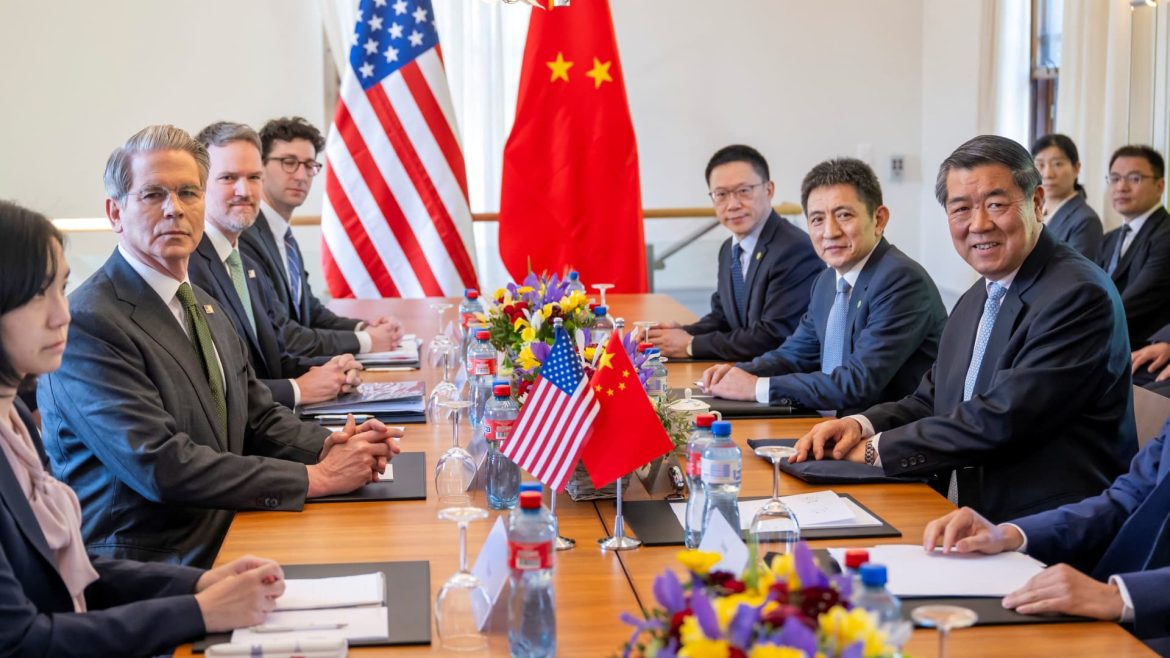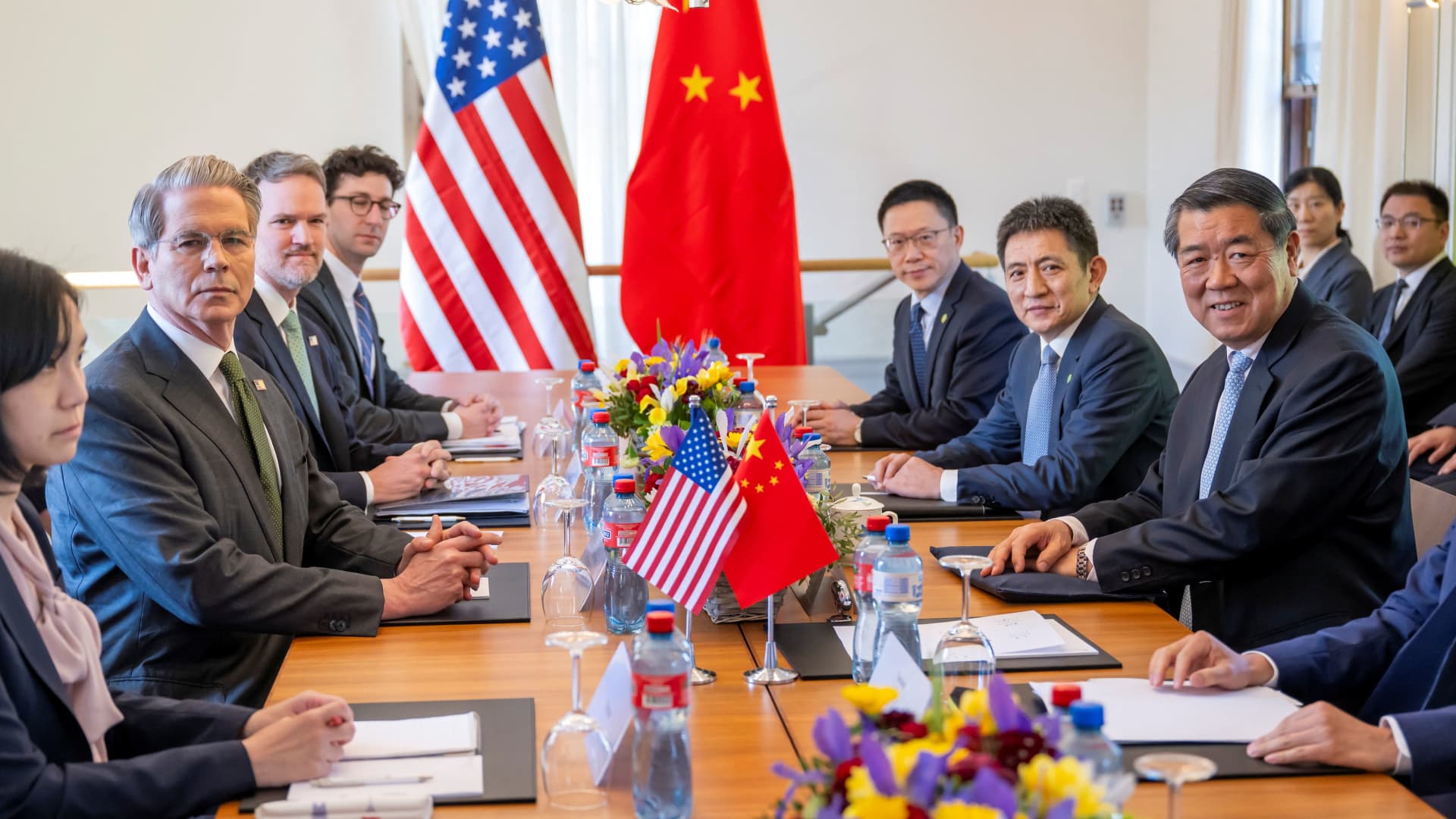The recent developments in U.S.-China trade relations signal a renewed, albeit cautious, effort to mend one of the world’s most significant economic rivalries. Announced by President Donald Trump, a new round of high-level trade talks is scheduled to take place in London on June 9, 2025. This diplomatic engagement reflects broader strategic, economic, and geopolitical themes that have characterized the ongoing trade standoff and offers insight into the possible trajectory of bilateral negotiations.
Context of U.S.-China Trade Relations
The trade tensions between the United States and China have been intense and multifaceted, marked by high tariffs, retaliatory measures, and disputes over access to rare earth minerals, intellectual property, and technology transfer. The Trump administration notably imposed tariffs reaching as high as 145% on certain Chinese imports, with Beijing responding in kind. These measures aimed to address perceived unfair trade practices and to protect domestic industries but had significant global economic repercussions, contributing to uncertainty in markets and supply chain disruptions.
Previous rounds of negotiations, such as those held in Geneva and Switzerland, yielded tentative agreements and temporary tariff pauses. Still, mutual distrust and unresolved issues prevented a comprehensive trade deal. Both sides have been wary not to appear weak, leading to cautious diplomatic posturing.
The London Trade Talks: Significance and Participants
The London talks are led by a seasoned U.S. delegation including Treasury Secretary Scott Bessent, Secretary of Commerce Howard Lutnick, and U.S. Trade Representative Ambassador Jamieson Greer. These officials will meet their Chinese counterparts in what President Trump described as a “renewed” effort following a positive phone call the previous day with Chinese President Xi Jinping.
This meeting is significant for several reasons:
Key Issues Likely on the Agenda
While official details remain sparse, several core topics have emerged as potential focal points for the talks:
– Tariff Relief and Adjustments: Trump has hinted at the possibility of lowering tariffs from their current hefty levels (145% on some goods) to a still significant 80%, which would represent a substantial easing. Any tariff adjustments have crucial implications for trade flows and market stability.
– Rare Earth Minerals: Both countries have flagged rare earths, essential for various high-tech and military applications, as critical to supply chain security. Negotiations may seek improved access or eased restrictions.
– Enforcement on Trade Practices: Issues such as intellectual property protection, technology transfers, and the treatment of companies like TikTok are expected to be discussed, reflecting long-standing U.S. concerns.
– Fentanyl and Other Sensitive Trade Matters: Tackling tariffs connected to specific products like fentanyl precursors and related enforcement could offer a narrower path toward incremental progress.
Broader Economic and Political Implications
The announcement of the London talks coincides with the Trump administration’s recent trade deal with the United Kingdom and an ongoing push to reshape global trade arrangements according to U.S. priorities. Politically, this move also serves to quell some of the market uncertainties and geopolitical friction caused by months of tariffs and heated rhetoric.
Market responses, including a rise in Brent crude prices, suggest investors are cautiously optimistic that these talks could lead to a thaw in trade tensions. However, analysts remain skeptical about a breakthrough, emphasizing persistent skepticism and geopolitical complexities.
Challenges Ahead
Despite the positive overtures, several challenges could impede progress:
– Deep-Rooted Distrust: Both parties have entrenched positions and high political stakes, making compromise difficult.
– Domestic Political Pressures: In the U.S., tariffs often serve as leverage for domestic political constituencies wary of China’s industrial policies. China likewise faces pressures not to concede too much.
– Supply Chain Reconfigurations: Businesses on both sides have begun adjusting supply chains in response to tariffs, complicating quick reversals.
– Geopolitical Tensions Beyond Trade: Issues such as technology competition, military posturing, and human rights concerns continue to cast shadows over purely economic discussions.
Conclusion: A Tentative Step Toward Trade Stability
The scheduled U.S.-China trade talks in London represent a crucial attempt to revive dialogue and possibly ease the strains that have roiled global trade and economic confidence. With top officials actively engaging and presidential support evident, these talks offer a platform for potential incremental progress. However, the entrenched nature of disputes and the complex geopolitical landscape mean that any agreement will likely be cautious and conditional.
Ultimately, these negotiations underscore the intricate balance between competition and cooperation that defines the U.S.-China relationship in the 21st century. While a “total reset,” as optimistically described by Trump, may be aspirational, the London talks signal a pragmatic acknowledgment that dialogue remains indispensable amid global economic interdependence. The outcome will be closely watched, not only for its direct economic impacts but also for what it reveals about the evolving dynamics between two of the world’s largest powers.





